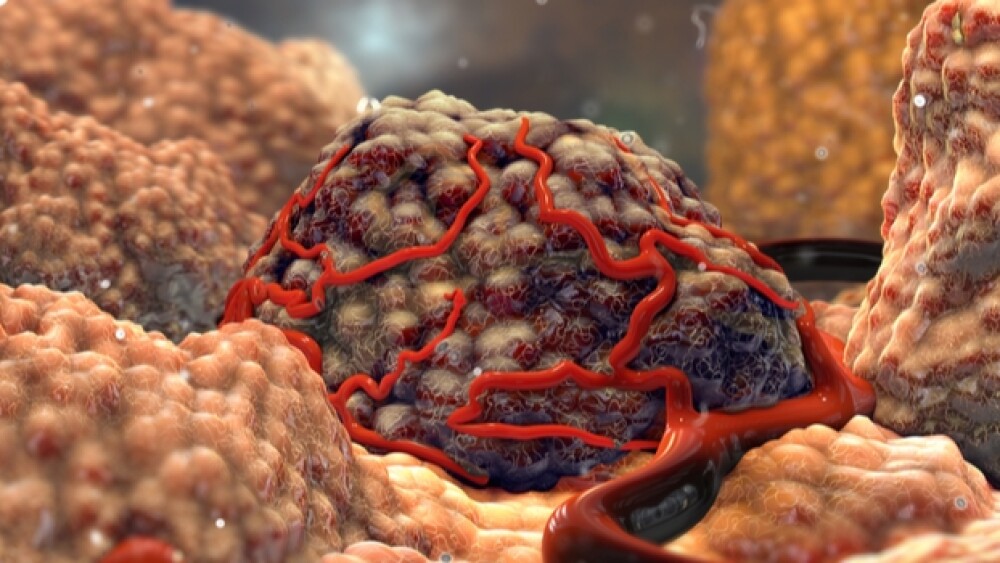The U.S. National Institutes of Health announced that a Phase II clinical trial of AstraZeneca and Merck’s selumetinib in neurofibromatosis type 1 shrank inoperable tumors.
The U.S. National Institutes of Health (NIH) announced that a Phase II clinical trial of AstraZeneca and Merck’s selumetinib in neurofibromatosis type 1 (NF1) shrank inoperable tumors.
NF1 is a genetic disorder that can affect multiple body systems. It is marked by skin changes, such as café-au-lait spots, Irish Lisch nodules, which are benign growths on the colored part of the eye, skeletal abnormalities like scoliosis, large head size and learning disabilities. These patients are also at increased risk of developing benign tumors of the nervous system, especially neurofibromas (nerve tumors) and optic pathway gliomas, tumors that form along the optic pathway. Other tumors and forms of cancer are also more common in NF1 patients. NF1 affects one in every 3,000 to 4,000 people.
The trial was run by researchers in the Center for Cancer Research (CCR) at the National Cancer Institute (NCI), part of the NIH. Data was published in the New England Journal of Medicine.
In November 2019, the U.S. Food and Drug Administration (FDA) accepted AstraZeneca and Merck’s New Drug Application (NDA) under Priority Review for selumetinib as a potential new therapy for pediatric patients three years and older with NF1 and symptomatic, inoperable plexiform neurofibromas (PNs). It was the first regulatory acceptance for an oral monotherapy for NF1. The PDUFA date is for the second quarter of this year.
Of today’s announcement, Brigitte Widemann, lead author of the trial and chief of CCR’s Pediatric Oncology Branch, said, “Until now, no effective medical therapies have existed for children with NF1 and plexiform neurofibromas, and it’s been a long journey to find a drug that can help them. While this is not yet a cure, this treatment is shrinking tumors and it’s making children feel better and have a better quality of life.”
The clinical trial studied 50 children from three to 17 years of age with NF1-related plexiform neurofibromas in 2015 and 2016. The most common symptoms related to the tumors were disfigurement, limited strength and range of motion, and pain. The children received the drug orally twice a day in 28-day cycles. They were assessed at least every four cycles. The NIH states, “The researchers used a novel approach to assess outcomes tailored to each patient’s specific tumor-related symptoms, something no prior clinical trial directed at NF1 neurofibromas had done before.”
As or March 2019, 80% of the patients had a confirmed partial response, which was greater than or equal to 20% volumetric tumor shrinkage. Most held that response for more than a year. After the year of receiving the drug, both children and their parents reported lower pain levels and clinically meaningful improvement in how pain affected daily function, quality of life, strength and range of motion.
“One of the most surprising findings of this trial was the impact the treatment had on pain,” said Andrea M. Gross, first author of the study. “It even helped patients who had been living with chronic, debilitating pain come off pain medications, which was not something we anticipated. So that was a really exciting finding.”
Of the study group, five patients stopped receiving the drug because of side effects and six had disease progression. The most common side effects were nausea, vomiting, diarrhea and rashes.
Selumetinib is a MEK 1 and 2 inhibitor designed to inhibit the MEK enzyme in the RAS/MAPK pathway. This pathway is a cell-signaling pathway associated with cancer cell growth and proliferation in a variety of different tumor types.
The AstraZeneca and Merck collaboration launched in July 2017 with a deal to co-develop and co-commercialize Lynparza, a PARP inhibitor, and selumetinib, for multiple cancer types.





